Allahumma Antas Salam Wa Minkas Salam Tabarakta Meaning And Arabic
Advertisements
Allahumma Antas Salam Wa Minkas Salam Tabarakta is recited immediately after every fard (obligatory) prayer.
It is sunnah of the Prophet Muhammad (may peace be upon him) to recite the full allahumma antas salam dua after taslim, that is after saying As-salamu alaykum warahmatullah at end of prayer
Allahumma Antas Salam Full Dua In English
The meaning of allahumma Antas Salam is O Allah, You are Peace and from You comes peace. Blessed are You, O Owner of majesty and honor.
Allahumma Antas Salam Wa Minkas Salam Tabarakta In Arabic
اللَّهُمَّ أَنْتَ السَّلَامُ وَمِنْكَ السَّلَامُ تَبَارَكْتَ يَا ذَا الْجَلَالِ وَالْإِكْرَامِ
Allahumma Antas Salam Transliteration
Allaahumma Antas Salam wa minkas salamu, tabarakta yaa zal Jalaali wal Ikraam.
Advertisements
Allahumma Antas Salam Wa Minkas Salam Hadith
Thauban reported: When the Messenger of Allah, may peace be upon him finished his prayer, he begged forgiveness three times and said: O Allah! Thou art Peace, and peace comes from Thee; Blessed art Thou, O Possessor of Glory and Honour.
Walid reported: I said to Auza’i: How Is the seeking of forgiveness? He replied: You should say:, I beg forgiveness from Allah, 1 beg forgiveness from Allah.
When the Messenger of Allah, sallallaahu alayhi wa sallam, would leave prayer, he would say:

Commentary Of The Hadith
Astaghfiru Allah, Astaghfiru Allah, Astaghfiru Allah, Allaahumma Antas Salaamu wa Minka as-Salaamu Tabaarakta Yaa Thal-Jalaali walIkraam.
Meaning: I seek Allah’s forgiveness, I seek Allah’s forgiveness, I seek Allah’s forgiveness, O Allah, You are As-Salaam [Peace], from You is peace, and You are Blessed, O Owner of Loftiness and Honor.
It is legislated for a person to ask Allah the Exalted for forgiveness after this great act of worship, because it is worthy of being careful about and shown keenness.
Many people are negligent regarding prayers, regardless if it is in their apparent legislated actions, or hidden ones.
Advertisements
In the legislated actions, they would show great negligence, and whisperings of Satan would take over their prayer, or at least, most of it.
In their apparent legislated actions, a person would not be free from negligence or omission.
Perhaps they would be negligent in placement of the hands, would look around in the prayer, or would move a lot for no reason, as is seen from many of those who pray.
All of this is from Satan.
RELATED POSTS;
- Allahumma Inni As Aluka Al Afiyah Dua
- Subhanallahi Wa Bihamdihi Adada Khalqihi Full Dua
- Allahumma Anfani Bima Allamtani In Arabic And Meaning
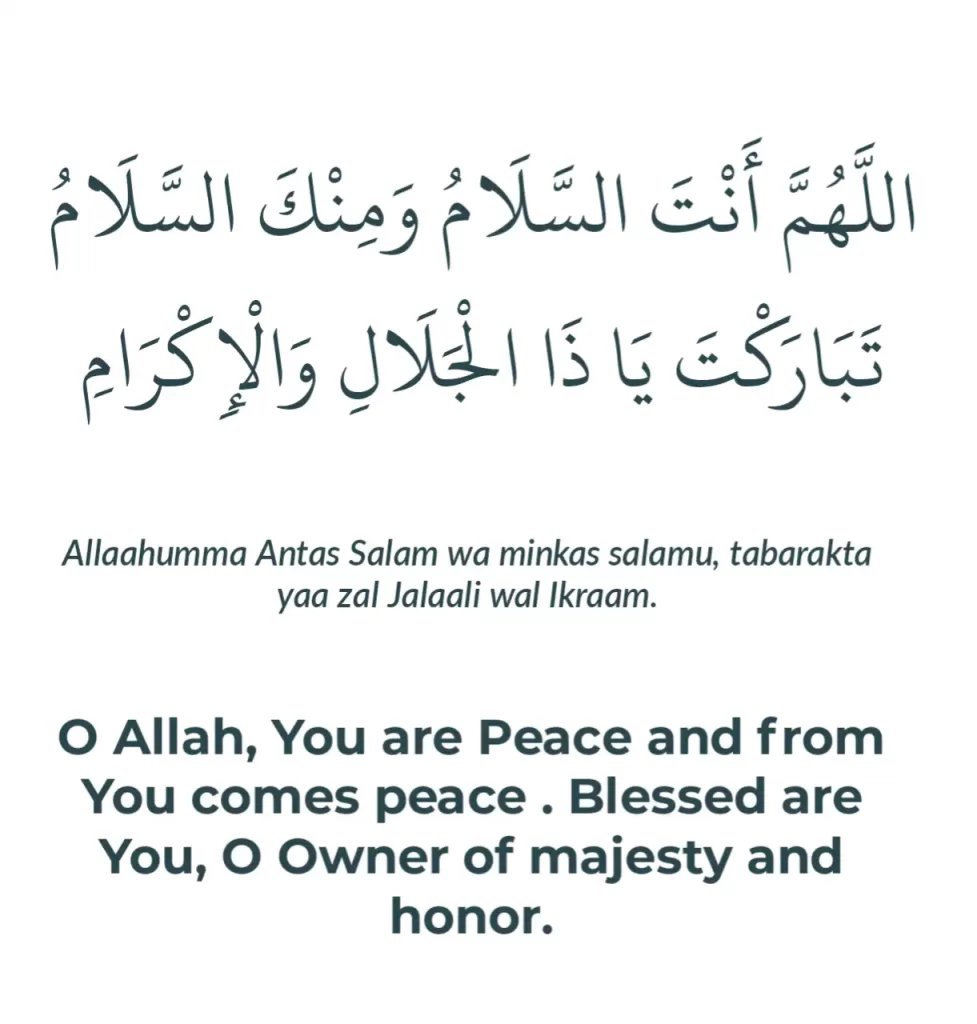
He wishes to busy and distract the one praying while they are standing before their Lord, by reminded them of something causing them to be busied by it, but when the prayer is over, he causes them to forget it, but when the following prayer comes forth, he reminds them and busies them, and so forth.
Ibn Al-Jawzi, may Allah have mercy on him, mentioned that a man went to Abu Haneefah, may Allah have mercy on him, and complained that he had buried some wealth in a particular area, but cannot remember.
Abu Haneefah, may Allaah have mercy on him, said to him:
“Go pray from this night until tomorrow, and you will remember where you placed it, if Allah the Exalted Wills.”
So, the man did that, and had only prayed a fourth of the night until he remembered where the wealth was.
Then, he went to Abu Haneefah, may Allaah have mercy on him, and informed him.
Abu Haneefah, may Allaah have mercy on him, said: “You have now come to know that Satan would not let you pray, but would remind of you of it.
So, are you not going to complete the night in prayer, out of thankfulness to Allah?”
The intent is to show that seeking forgiveness after concluding the prayer with peace has a clear appropriateness, and it is to fill in the deficiency and mistakes that occurred during prayer.
We ask Allaah the Exalted for forgiveness.
After seeking forgiveness, he, sallallaahu alayhi wa sallam, would say:
“O Allaah, You are As-Salaam [Peace], from You is peace, and You are Blessed, O Owner of Loftiness and Honor.”
The appropriateness of this is obvious.
It is as if you are saying: O Allaah, You are Peace, so make my prayer safe from being rejected and having deficiencies, because prayer may be accepted or rejected, some might be recorded, and other parts would be rejected.
This is as Imaam Ahmad, may Allaah have mercy on him, reported from Ammaar ibn Yaasir, may Allaah be pleased with him, who said that he heard the Messenger of Allaah, sallallaahualayhi wa sallam, say:
“A slave will pray a prayer, but only a tenth, ninth, eighth, seventh, sixth, fifth, fourth, third, or half would be accepted from them.

O Allah, you are Assalam (peace), peace is one of the names of Allah, and it indicates safety, that Allah is safe from every flaw and shortcoming in himself, his actions and his attributes.
O Allah, you are peace, and from you is peace, that every safety that is sought, obtained or occurred to people in their religious or worldly affairs, is from Allah alone.
Note
The Sunnah (Prophetic guidance) is for the Muslim to say after every obligatory prayer, whether he prayed as an imam (leader) or behind an imam or on his own: Astaghfirullah (I ask Allah for forgiveness) three times, then Allahumma anta al-salam wa minka al-salam tabarakta ya dhal-jalali wa’l-ikram.
(O Allah, You are the One Who is free from all defects and deficiencies and from You is all peace, blessed are You, O Possessor of majesty and honour).
It is not permissible to recite out loud in unison; rather each person should recite to himself without paying attention to the voice of anyone else, because reciting dhikr in unison is an innovation for which there is no basis in Islam.
May Allah send peace and blessings upon our Prophet Muhammad and his family and Companions and those who followed them in truth until the Day of Judgement.
And Allah knows best.
Advertisements

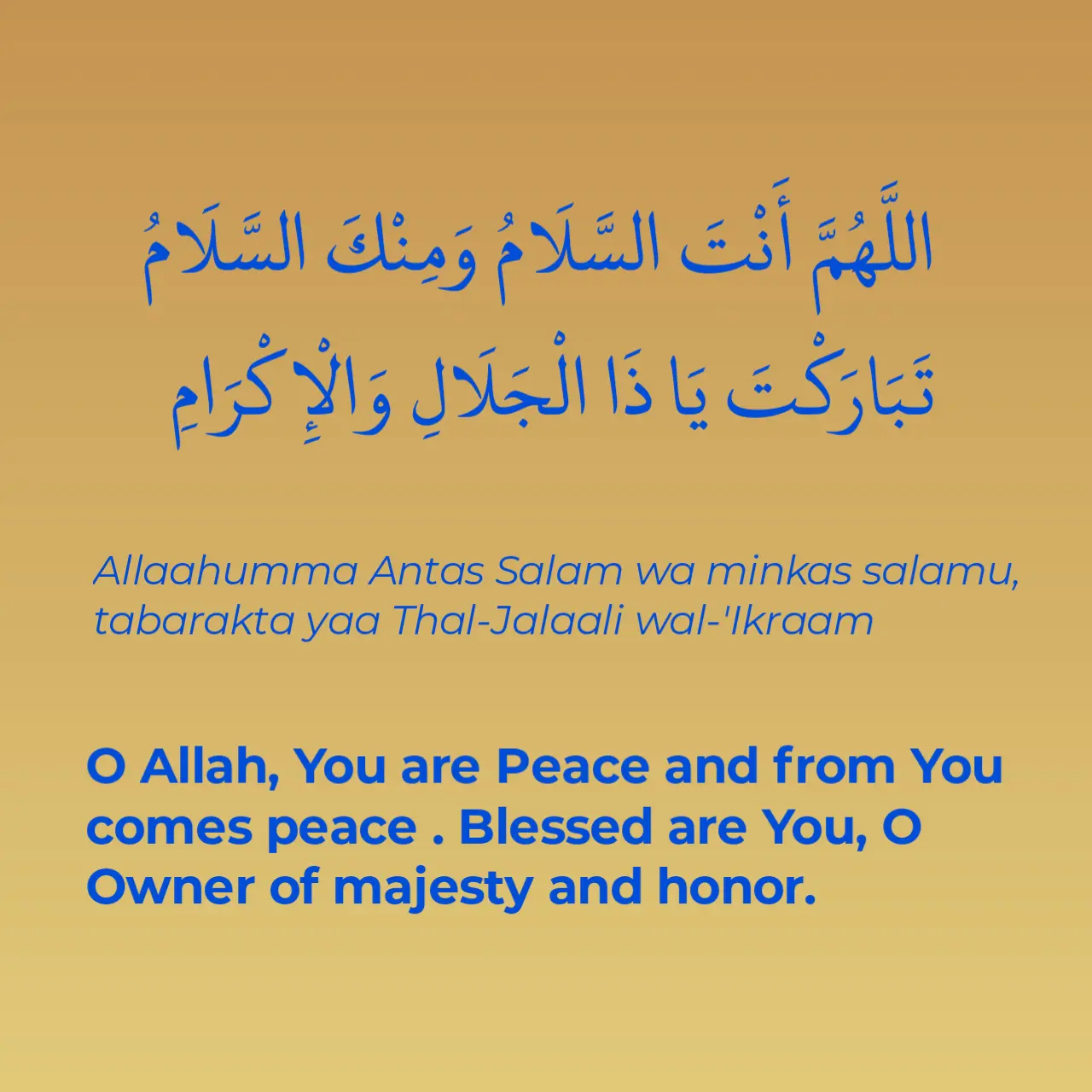
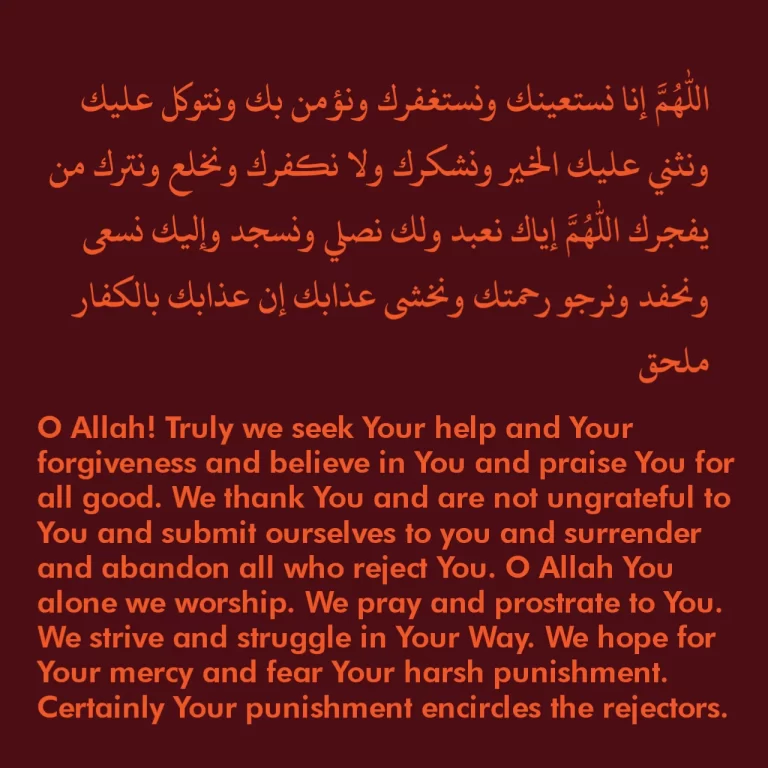


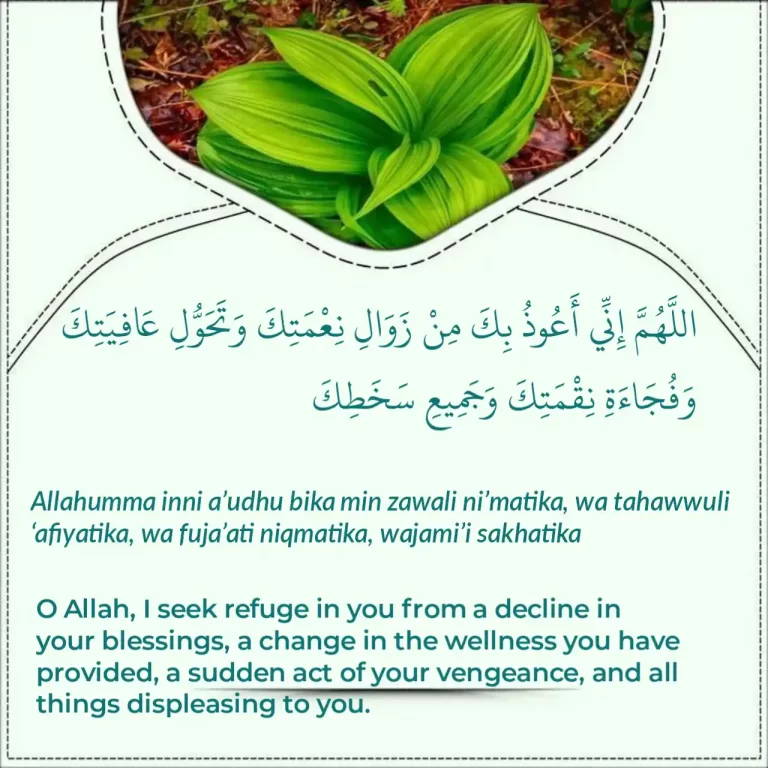
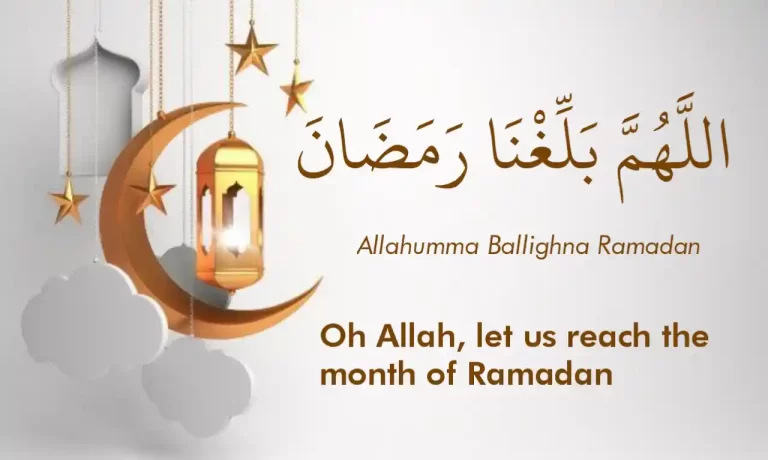

3 Comments